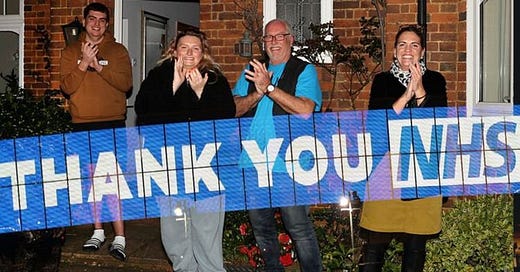Boris Johnson, the UK prime minister, called on the whole of the UK to protect the NHS from the dangers of the pandemic. As a result, health services were almost completely withdrawn for the vast majority of the over sixty million people living in the UK in 2020.
A ‘spontaneous’ campaign started where the public were encouraged go out on the doorsteps o…
Keep reading with a 7-day free trial
Subscribe to Where are the numbers? by Norman Fenton and Martin Neil to keep reading this post and get 7 days of free access to the full post archives.





